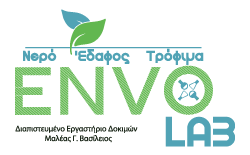Hazard Analysis and Critical Control Point (HACCP), or as it is translated into Greek, Hazard Analysis and Critical Control Points is a systematic approach that is based on the principles of the Codex Alimentarius and aims to identify key points (Critical Control Points). to prevent, limit or eliminate any potential physical, chemical and biological hazards that may occur in a foodstuff during its production process.
Implementation of HACCP is mandatory in our country, in accordance with European Directive 93/43 / EEC and the CFS. 487 / GG 1219 B / 4.10.2000 and obliges all undertakings manufacturing, processing, producing, packaging, storing, transporting, distributing, distributing or distributing food and beverages to apply documented (written) HACCP (European Regulation (EC) 178 / 2002 and EC 852/2004). Implementing a HACCP system maximizes food safety by minimizing microbiological (eg pathogenic microorganisms), chemical (eg antibiotics) and natural (eg exogenous metals, dust) hazards.





